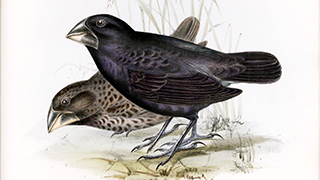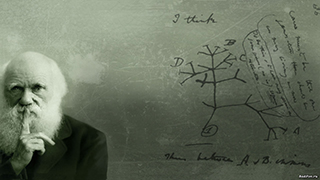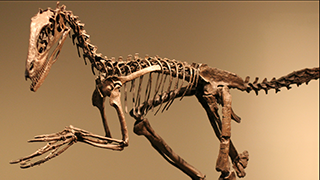MENU
The Electronic Scholarly Publishing Project: Providing world-wide, free access to classic scientific papers and other scholarly materials, since 1993.
More About: ESP | OUR CONTENT | THIS WEBSITE | WHAT'S NEW | WHAT'S HOT
ESP Site Information 14 Jul 2025 Updated:
ESP Needs
This page outlines some needs of the ESP Project, including documents to be acquired and work to be undertaken. If you are interested in becoming an active member of the ESP support community, read on.
Documents
The Electronic Scholarly Publishing Project would like to acquire the following documents, either as physical copies or as high-quality digital scans. If you can assist with the acquisition of these works, please CLICK HERE.
An Account of Persons Who Could Not Distinguish Colours. By Mr. Joseph Huddart, in a Letter to the Rev. Joseph Priestley, LL.D. F. R. S.
Phil. Trans. R. Soc. Lond. January 1, 1777 67:260-265; doi:10.1098/rstl.1777.0015
An Account of a Remarkable Imperfection of Sight. In a Letter from J. Scott to the Rev. Mr. Whisson, of Trinity College, Cambridge. Communicated by the Rev. Michael Lort, B. D. F. R. S.
Phil. Trans. R. Soc. Lond. January 1, 1778 68:611-614; doi:10.1098/rstl.1778.0028
Volunteer Work
The Electronic Scholarly Publishing Project would appreciate assistance with the following tasks. If you are interested in volunteering to assist with this work, please CLICK HERE.
Translation into English: Many critically important works in classical genetics have never been translated from their original languages into English. If you are fluent in scientific German or French or Russian or ... and would be interested in translating some key works, CLICK HERE to volunteer.
Translation into other languages: Many other critically important works have never been translated from English into other languages. If you are fluent in any language and would like to volunteer to translate an important work into your language, we would be happy to consider publishing your translation, either as a stand-alone document, or in side-by-side form with the original work. If you would like to engage in this effort, CLICK HERE to discuss your ideas.
Side-note annotations: We now have the technology to allow the ready production of side-note annotated scholarly works. If you would like to suggest works to be annotated (or better yet, would be willing to write the annotations), we would happy to work with you to produce these works. CLICK HERE to volunteer.
Proof reading: As we prepare texts and books for publishing, help with pruf-reeding is alwats needed. Alwats! CLICK HERE to volunteer.
Scanning: Help with scanning rare books and papers would be appreciated. CLICK HERE to volunteer.
Producing graphics and other art work: If you are a graphic artist and would like to help, CLICK HERE to volunteer.
Writing
The Electronic Scholarly Publishing Project is always interested in having others join the team of staff writers. If you are interested in volunteering to assist with the writing of ESP content, please CLICK HERE.
Book reviews: The ESP community would benefit from timely reviews of relevant books. CLICK HERE to volunteer.
Subject essays: We would be happy to publish original essays on relevant topics. Imagine an on-line encyclopedia of classical genetics — any topic that would make a reasonable entry in such an encyclopedia would be a good topic for a subject essay. CLICK HERE to suggest topics and to volunteer to write about them.
Reading lists: Reading lists, especially annotated reading lists, are welcome. CLICK HERE to volunteer.
Biographical sketches: The ESP project now provides links to various on-line sources of biographical material, but we would also be happy to publish original biographical essays. CLICK HERE to volunteer.
Edit
The Electronic Scholarly Publishing Project is always interested in having others joining the editorial team who oversee the creation and assembly of site contents. If you are interested in volunteering to serve as an ESP editor, please CLICK HERE.
Editors are responsible for choosing topics for inclusion, for selecting representative works for those topics, and for writing the accompanying comments and annotations. CLICK HERE to volunteer.
Assistant Editor: Assistant editors do just that. CLICK HERE to volunteer.
Full Editor (existing topic): Full editors take complete responsibility for the content relevant to a particular topic. CLICK HERE to volunteer.
Full Editor (new topic): Although The Electronic Scholarly Publishing Project was originally created to provide access to materials relevant to classical genetics, we would be happy to entertain the possibility of adding materials relevant to entirely new topics. If you would like to use the ESP publishing environment to create an on-line resource for any scholarly topic, contact us to discuss your ideas. CLICK HERE to initiate a discussion.
Donations
The Electronic Scholarly Publishing Project welcomes support from the ESP community. Send lawyers, guns, and money. OK, the "lawyers, guns, and money" business is actually from Warren Zevon's 1978 album, Excitable Boy. We don't really need any guns. Money is always handy, however, and so is legal advice.
Cash donations: It costs money to maintain the web site; to acquire, process, and publish content; and generally just to keep the system alive. CLICK HERE if you have extra cash that is looking for a good purpose.
Corporate sponsorship: If you work for a company that might be interested in providing corporate sponsorship of ESP, in return for acknowledgement on the web site, CLICK HERE to discuss the possibilities.
Published works: We are always interested in receiving donated copies of works that could be added to the ESP collection. CLICK HERE to let us know what you have that you would like to donate.
ESP Quick Facts
ESP Origins
In the early 1990's, Robert Robbins was a faculty member at Johns Hopkins, where he directed the informatics core of GDB — the human gene-mapping database of the international human genome project. To share papers with colleagues around the world, he set up a small paper-sharing section on his personal web page. This small project evolved into The Electronic Scholarly Publishing Project.
ESP Support
In 1995, Robbins became the VP/IT of the Fred Hutchinson Cancer Research Center in Seattle, WA. Soon after arriving in Seattle, Robbins secured funding, through the ELSI component of the US Human Genome Project, to create the original ESP.ORG web site, with the formal goal of providing free, world-wide access to the literature of classical genetics.
ESP Rationale
Although the methods of molecular biology can seem almost magical to the uninitiated, the original techniques of classical genetics are readily appreciated by one and all: cross individuals that differ in some inherited trait, collect all of the progeny, score their attributes, and propose mechanisms to explain the patterns of inheritance observed.
ESP Goal
In reading the early works of classical genetics, one is drawn, almost inexorably, into ever more complex models, until molecular explanations begin to seem both necessary and natural. At that point, the tools for understanding genome research are at hand. Assisting readers reach this point was the original goal of The Electronic Scholarly Publishing Project.
ESP Usage
Usage of the site grew rapidly and has remained high. Faculty began to use the site for their assigned readings. Other on-line publishers, ranging from The New York Times to Nature referenced ESP materials in their own publications. Nobel laureates (e.g., Joshua Lederberg) regularly used the site and even wrote to suggest changes and improvements.
ESP Content
When the site began, no journals were making their early content available in digital format. As a result, ESP was obliged to digitize classic literature before it could be made available. For many important papers — such as Mendel's original paper or the first genetic map — ESP had to produce entirely new typeset versions of the works, if they were to be available in a high-quality format.
ESP Help
Early support from the DOE component of the Human Genome Project was critically important for getting the ESP project on a firm foundation. Since that funding ended (nearly 20 years ago), the project has been operated as a purely volunteer effort. Anyone wishing to assist in these efforts should send an email to Robbins.
ESP Plans
With the development of methods for adding typeset side notes to PDF files, the ESP project now plans to add annotated versions of some classical papers to its holdings. We also plan to add new reference and pedagogical material. We have already started providing regularly updated, comprehensive bibliographies to the ESP.ORG site.
ESP Picks from Around the Web (updated 28 JUL 2024 )
Old Science

Weird Science

Treating Disease with Fecal Transplantation
Fossils of miniature humans (hobbits) discovered in Indonesia
Paleontology

Dinosaur tail, complete with feathers, found preserved in amber.
Astronomy

Mysterious fast radio burst (FRB) detected in the distant universe.
Big Data & Informatics

Big Data: Buzzword or Big Deal?
Hacking the genome: Identifying anonymized human subjects using publicly available data.